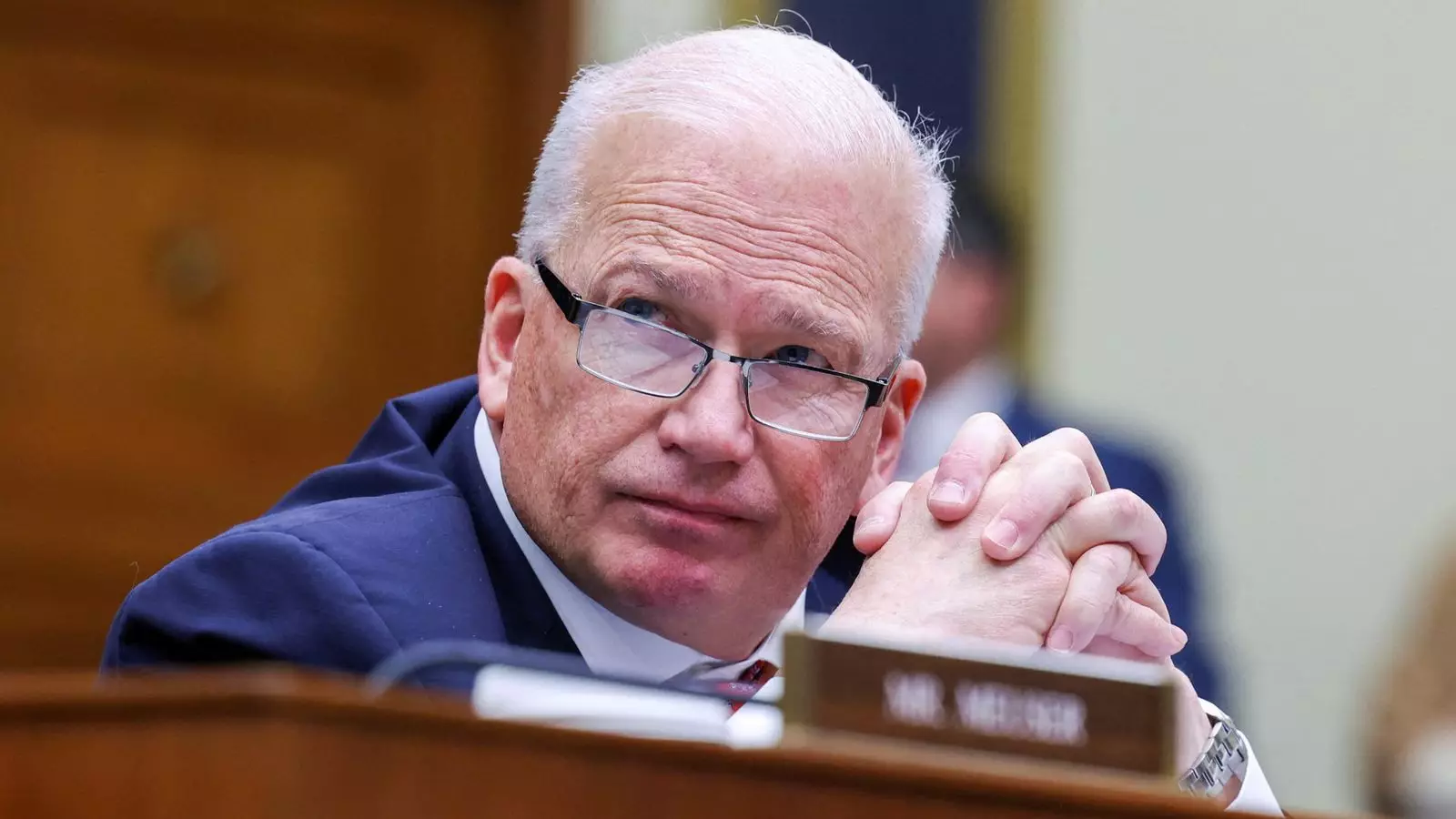In an era where technology increasingly mediates every aspect of our lives, the notion that global social media giants might band together to oppose regulatory efforts raises alarm bells. The recent suggestion by a prominent American politician that companies like Meta, Apple, and Microsoft could form a “united front” to counteract European regulations is not just simplistic; it’s deeply troubling. It signals a dangerous prioritization of corporate interests over democratic accountability and public safety. Instead of embracing diversity in policy approaches that safeguard free expression and civic rights, these corporations seem more interested in consolidating their power at the expense of lawful regulation.
The idea of a corporate alliance—conceived ostensibly to “fight off” regulation—reveals a troubling naivety within the political discourse. It ignores the fundamental reason for regulation: to protect citizens from harm, ensure transparency, and uphold the democratic principles that underpin liberal societies. When powerful tech companies conspire behind closed doors to thwart these efforts, it diminishes the democratic process and shifts the balance toward unchecked corporate dominance. Such collusion undermines the very fabric of responsible innovation that should foster technology that benefits society, not exploits it.
The Threat to Democratic Governance and Public Safety
This potential unified push against laws like the European Union’s Online Safety Act signals a troubling shift toward corporate interests overriding democratic governance. European regulators are attempting to establish clearer standards for accountability, transparency, and safety—aims that are essential given the outsized influence of these platforms. However, when these corporations consider working together to resist such legislation, it suggests they see regulation not as a means to improve societal outcomes but as an obstacle to their profit-driven motives.
Treating regulation as an adversary rather than a safeguard shifts the narrative from public safety to corporate profit. The implications are profound: in their efforts to “fight off” legislation, these tech giants risk creating safer digital spaces for users, or conversely, they may simply prioritize profits over public safety, knowing that a collusive front could make it harder for democratic institutions to enforce meaningful change. The dangers are magnified when political figures support or encourage such collusion, revealing a troubling willingness to sacrifice oversight for the sake of corporate alliance.
The Underlying Motivations and Political Implications
The political undertones of this so-called “united front” reveal much about current power dynamics. The involvement of Republican figures aligned with Trump suggests a collusive effort to weaken international regulations that could curtail the influence of American tech firms overseas. By framing these regulations as attempts at censorship, they rally a narrative that appeals to free speech extremism—while neglecting the crucial need for responsible content moderation that promotes safety and civic integrity.
The partnership through diplomacy, as evidenced by meetings with UK officials and the suggestion of corporate cooperation, displays a reckless disregard for sovereignty and accountability. It subtly encourages a corporate-influenced lobbying approach, where legislation becomes a battleground for corporate interests rather than a platform for democratic deliberation. If allowed to fester, such collusion threatens to turn regulation into a battleground where profits are prioritized over human rights, safety, and democratic values.
The Future of Digital Regulation in a Capture of Power
This ideological shift — from regulation as a safeguard to regulation as an obstacle — exemplifies a dangerous drift toward corporate digital authoritarianism. When companies work together against public-interest laws, they effectively embed their influence within the policymaking process. This alliance can inhibit the development of robust, democratic regulatory frameworks, leaving society vulnerable to unchecked manipulation, disinformation, and harm.
The challenge for progressive liberals and democratic societies is to recognize this potential for corporate collusion and to resist it decisively. Regulation should protect citizens from exploitation and abuse. It should serve as a mechanism to ensure diverse voices are heard and that technological power remains accountable. That means championing policies that limit corporate influence, promote transparency, and uphold human rights—rather than capitulating to the vested interests of monopolistic tech conglomerates eager to preserve their dominance at all costs.
This ongoing battle over regulation is a test of democratic resolve. It’s an invitation to question who truly holds the power in digital spaces—the public or the corporations that increasingly control them. Shoring up democratic oversight and resisting corporate collusion isn’t just prudent; it’s essential to safeguarding the open, free, and equitable society we aspire to uphold in the digital age.


Leave a Reply